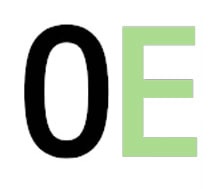Our Advisors
|
Whilst we want to move away from the way we culturally hold 'experts', we see advice and sharing experience both with those impacted and with specialists as essential. We value many who have walked before us carving out much of the path we now walk, and those currently exploring this terrain, including some of our advisors listed below.
Dr Ute Kelly Lecturer in Peace Studies at the University of Bradford UK, specialist in processes of dialogue and deliberation on difficult issues, participatory pedagogies and community resilience. Ruki Fernando A renowned Sri Lankan Human Rights activist, Ruki works internationally with governments, communities and individuals. Jim Blair Retired head of Womans' and Gender Violence Unit and lead trainer on Policing and Equality, Metropolitan Police; NVC and youth worker, UK. |
Doreen Lawrence, OBE
Founder and Director of The Stephen Lawrence Trust, UK. Prof. Tom Woodhouse Internationally renowned peace studies and conflict resolution scholar, Emeritus Professor at the Division of Peace Studies and International Development, University of Bradford, UK. Cynthia Petrigh Human Rights and Peace building specialist, with focus in working on gender, and with military and governments internationally. Fr. Chris Rajendran Facilitator, lecturer and teacher in applied Nonviolent Communication in Sri Lanka and internationally. |
|
Our take on 'expert culture'
Going into communities, conflict situations or organisation as ‘expert, neutral outsiders’ is the conventional approach. In OpenEdge we seek other ways of bringing what we offer, creating 'power with' rather than 'power over' relationships. We understand our role as specialists in eliciting and supporting local conflict wisdom and expertise, rather than being experts bringing answers. A consciousness of power (in different forms) within all social and structural relations, including our own actions and engagements, is key to the way we work in OpenEdge. We understand neutrality as a myth - we bring power dynamics and conditions with us. We also act from our own personal needs (contribution, wellbeing, safety, meaning and purpose, to be seen and understood, freedom, creativity, authenticity etc.), not only the needs of those with whom we are working. |
It is not that empiricist, technical, expert approaches are wrong, it is that they are incomplete. To believe that science and rationalism are supreme, or to reject them and replace rational supremacy with emotions and spirituality, is also reductionism of Life itself. |
Thus, in OpenEdge we are not neutral but multi partial, intending at all times to be connected to the dynamic interdependent needs of all present, including ourselves. Acting from a place of ‘being on everyones side’ means all needs matter. In this way we develop systems of equity and re-centring marginalised experiences, with a commitment to attending to all needs, within a clear purpose of why we are there.
